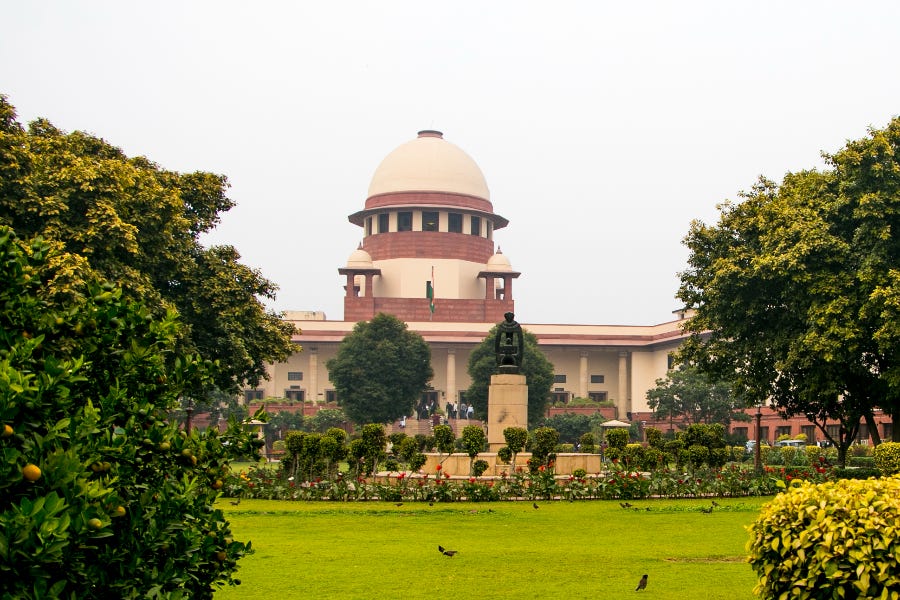
India’s Supreme Court has agreed to examine a petition alleging discrimination against Dalit Catholics in a parish in the southern state of Tamil Nadu.
Franklin Caesar Thomas, a lawyer representing the Dalits, who occupy the lowest rung in India’s traditional caste hierarchy, said the Supreme Court’s Feb. 21 decision to review the appeal was a “first in the history of India.”
The petitioners, from a parish in the village of Kottapalayam, in the Latin Rite Diocese of Kumbakonam, say they have experienced discrimination within the Church from members of the upper caste, but neither district nor state authorities have intervened to help them.
Thomas told UCA News that the parish would not accept contributions from the 150 local Dalit Catholics, or include them in certain Church activities. High-caste families reportedly have a larger cemetery space than the Dalit Catholics.
Indian media reported that a priest who spoke out for caste equality was asked to leave the village by upper-caste Christians and Hindus.
Dalits, known historically as “untouchables,” are guaranteed equal rights in India’s constitution. Accounting for roughly 200 million out of India’s 1.45 billion population, they continue to face discrimination across the country.
Writing in March 2024, Thomas suggested that “about 12 million out of 19 million members of the Catholic Church” in India were Dalits. But despite forming a majority, he said, they were underrepresented in the priesthood and religious life, with only 12 Dalit bishops out of more than 200.
The first Dalit bishop was appointed in 1977 and the first Dalit cardinal, Cardinal Anthony Poola, was named by Pope Francis in 2022.
Examples of discrimination cited by Thomas included separate cemeteries and funeral transport for lower and higher castes, and the exclusion of Dalits from parish councils, altar service, and choirs.
In 1990, Tamil Nadu’s bishops unveiled a 10-point program seeking to counter caste-based discrimination within the Catholic Church.
In 2016, the Catholic Bishops’ Conference of India (CBCI) issued a document calling for “Dalit empowerment” in the Church. The text acknowledged that “practices of untouchability do exist in the Church” and set out policies to eliminate discrimination.
In an unpublished article circulated among Indian Catholics via messaging platforms, the Capuchin priest Fr. Suresh Mathew wrote that the allegations of caste-based discrimination within the Catholic Church in Tamil Nadu were “a stark reminder that even in institutions dedicated to spreading love and compassion, prejudice and inequality can persist.”
“The fact that Dalit Christians are being denied basic rights, such as equal access to cemetery facilities and funeral rites, is a shameful indictment of the Church’s failure to uphold its own values of equality and justice,” he wrote.
He added: “The Supreme Court’s decision to issue a notice in this case is a welcome step towards holding the Church accountable for its actions. However, it is ultimately up to the Church itself to confront its own biases and prejudices, and to take concrete steps towards creating a more inclusive and compassionate community.”
The Madras High Court, which has appellate jurisdiction over Tamil Nadu state, dismissed a petition from the Dalit Catholics in Kottapalayam in April 2024. It said the petitioners should pursue the case in the civil courts and at the National Commission for Minorities, a statutory body designed to defend the rights of India’s religious minorities.
But the petitioners argued that the national commission did not have the authority to uphold constitutional rights and the discrimination they experienced was “not a private dispute but a constitutional issue.”
Supreme Court judges have asked the Tamil Nadu state government and Church authorities to respond to the discrimination claims by April 15.








This is honestly repugnant. If I'm wrong I hope someone will correct me, but isn't the caste system based in Hinduism? My understanding is that it's a very different thing from western notions of "class" or historic social divisions like nobility vs. commoners. But seriously, why should Brahmins be treated with extra deference in a Catholic context, if their claim to higher status was that they (or their ancestors) were the priests of false pagan gods? It doesn't make sense to me.